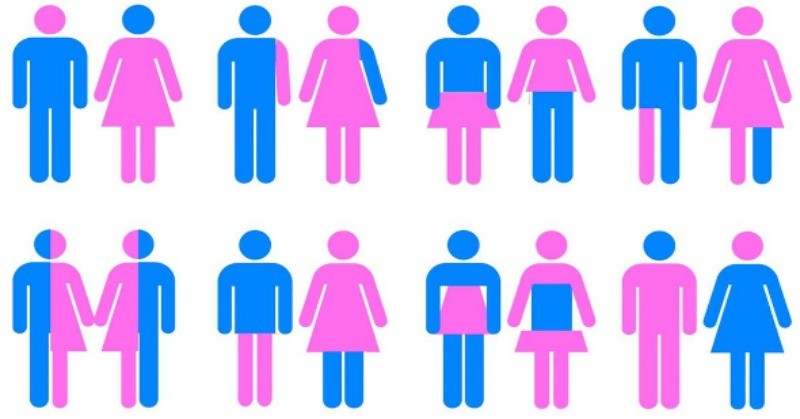As published in Newsweek.
In 2020, various Jewish progressives organized a tendentious campaign of statements, articles, and even rallies insisting that Judaism permits—indeed, demands—unfettered abortion. I observed then that “few things have been said about Judaism by its purported adherents that are more clearly untrue.” Now, following a new wave of opinion pieces and even news articles over the past few months, it seems necessary to add another item to the list: the notion that Judaism recognizes a range—perhaps even a “multiplicity”—of genders.
These claims popped up almost overnight, like mushrooms on a damp field after too much rain. Left-wing clergy, parents of prepubescent children, and even a sitting member of Congress all tried to obscure the obvious and promote the preposterous.
The idea of a “gender identity” distinct from biological sex is, of course, entirely modern. But there is an even more obvious reason why “gender identity” cannot be found in Torah or millennia of Rabbinic literature. Or, it should be obvious, at least, to anyone able to read even the first chapter of the Jewish Bible, in any of the over 700 languages into which it has been translated.
Genesis 1:27 declares (in English translation): “Male and female He Created them.” The following chapter explains that male and female were Created together, and then separated so that husband and wife might rejoin, once again becoming “one flesh” through the forming of their offspring. And that is the sum total of what the Bible has to say about “gender identity:” that men and women are distinct Creations, complementary to each other, each made the way G-d wanted them to be.
What the rabbis still needed to address, of course, were birth defects and other physical aberrations, to understand how affected individuals should observe Jewish laws that differ for men and women. Since the four such phenomena described in the Talmud are mischaracterized by those who now promote modern notions of gender identity, it is worth briefly describing each of them in turn.
A saris is a eunuch, or one who has been castrated. This is the only one of the four examples discussed in the Talmud that could result from either acts of man or acts of nature. For a Jew to do this, however, even to an animal, violates, according to a commonly used 13th-century compilation, Commandment number 291 of the 613 Commandments found in the Torah.
The other three phenomena are all exclusively accidents of birth. An aylonis is a woman who is unable to develop physically, whether due to lacking a womb or a hormonal imbalance. An androgynous exhibits both male and female biological characteristics, and a tumtum, by contrast, has a membrane of skin covering the pubic region, such that his or her sexuality cannot always be determined.
The Talmud records a case of a tumtum who cut the membrane open, and went on to father seven children. Far from being some sort of early transgender procedure, this story proves that a tumtum is indeed of one or the other innate biological sex—it is just that it is masked.
Advocates often latch on to one singular phrase, “Rabbi Yossi says, an androgynous is a Creation of its own” [Bikkurim 4:5], yet, amazingly, do not finish the sentence: “and the rabbis could not prove conclusively if he is man or woman.” In other words, this discussion of a minority opinion makes clear that the determination is an objective one, to be made by neutral judges. The individual’s subjective self-perception is irrelevant; the only question is how he or she was Created by G-d.
This is the sole context of all such Talmudic discussions, which the advocates deliberately ignore. Not only is there no recognition of “gender identity” in Rabbinic literature, but aberrations are neither desirable nor a human choice; rather, they are unfortunate physical defects which legal decisors must address.
As stated at the outset, Judaism teaches that G-d Created male and female so that they might partner with Him in creating a next generation. Surgical and pharmaceutical interventions do not render a woman able to produce sperm or a man able to conceive, gestate, and deliver a baby.
No one can claim with a straight face that procedures resulting in permanent infertility, ongoing medical needs, and shortened lifespans are sanctioned under the moral beliefs of Judaism. All they do is deprive a person of healthy biological function while giving him/her a superficial resemblance to the other gender. Far better for a person to come to embrace what Divine Wisdom has bestowed upon each and every one of us.

